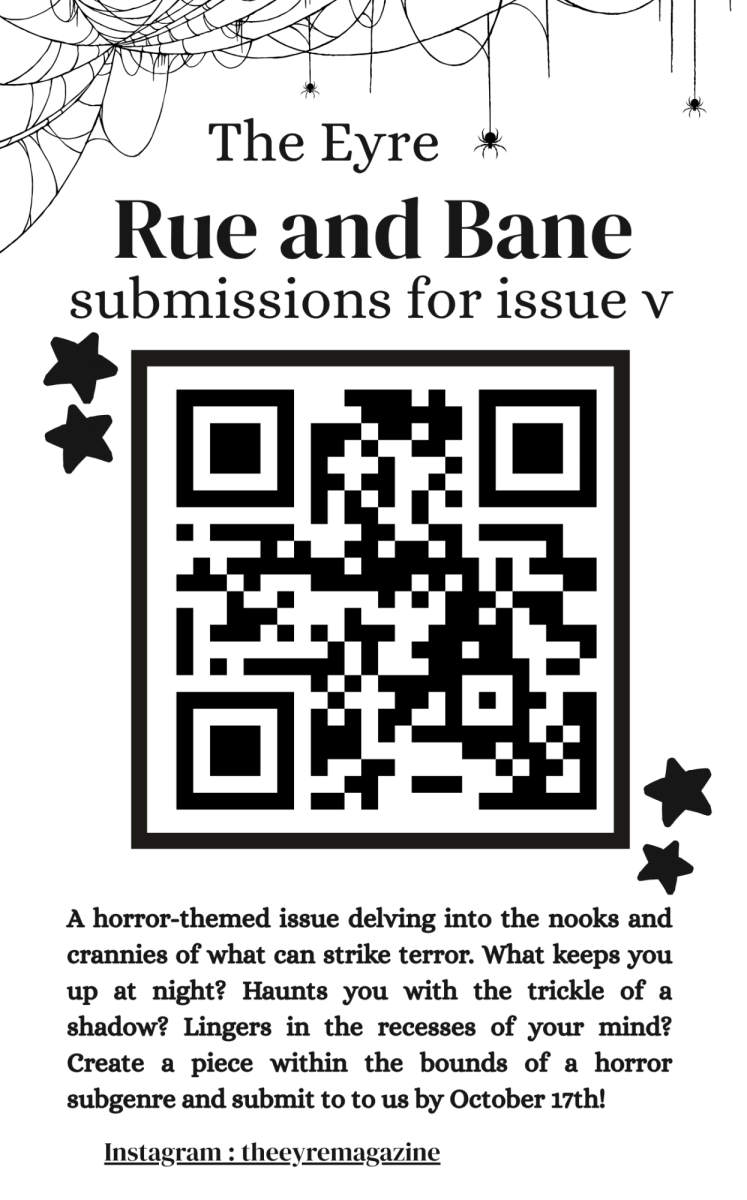When words felt like the only way to make sense of the chaos of her emotions, Leanne Mahmoudi (11) picked up a pen and hasn’t looked back. Now, Mahmoudi has turned personal battles and quiet observations into The Nobody, a poetry book published December of 2024.
Through her poems, Mahmoudi unveils her experience with sexual assault, body dysmorphia, and other mental health struggles. She weaves her lived experiences into each verse, creating a space where she can confront and make sense of her trauma.
“I feel like it’s [writing the book] helped me improve as a person, sort of reflect on my surroundings and not think of them as black and white. Just sort of try to find the good in everything,” she said.
The idea for the book took shape during her time at the Harvard Pre-College program in the summer of 2024. Mahmoudi was already writing poetry prior to this, and an opportunity to share her works with others presented itself.
“I was having a really bad time [with my mental health],” she said. “I saw an ad for this publishing company that was looking for aspiring writers. I applied, and I got in.”
For Mahmoudi, her use of unorthodox punctuation also reflected on her state of mind when writing the book.
“The whole theme of my book—it’s all in lowercase,” she said. “The punctuation is all over the place. All the titles are lowercase. Most of them are one or two words. Everything’s sort of brief, and in a way, I feel like that symbolizes how I reflected upon the experience of mental illness.”
Mahmoudi’s unconventional writing style was a mirror of each of her emotions and thoughts. The lack of proper punctuation was interpreted by her as a lack of proper structure and support in her life.
“I chose this writing style because I felt like a lack of proper punctuation and capitalization whatsoever directly symbolized the desperation and lack of hope present when experiencing such low mental health,” she said. “It was also a way to represent how I felt exposed, that these emotions were mine and raw and I was like an open book.”
Despite drawing inspiration from her personal experiences, Mahmoudi says that the book is also meant to resonate with a broader audience. She hoped that anyone facing similar struggles would realise that other people have been through the same thing.
“I really hope that some people can feel seen,” she said. “I thought that this might be a way to help other people, and I was really hoping that less people would feel alone, because personally when I was going through this stuff, I really did feel alone.”
Among the many sensitive topics discussed, Mahmoudi opened up about her own experience with sexual assault. When first writing the book, Mahmoudi struggled writing about the topic knowing that her parents and close friends were eager to read her work.
“Sexual harassment or assault, that’s definitely the hardest thing for me to write about,” Mahmoudi, said. “I was really afraid to write about it. That’s why actually, on the cover of my book, I just put my first name and my last initial. Because at first I was really, really afraid of publishing something this intimate.”
In spite of the difficulties that came with relieving her experiences, Mahmoudi found that the act of writing helped her process her trauma.
“Thinking about it in your head and seeing it on paper is completely different,” she said. “After writing out how I felt and then fitting it into this book, it helped me gather my thoughts together. By visualizing my emotions, I was able to get past being overwhelmed about writing the poetry book.”
Through her poetry, Mahmoudi hopes to inspire others through her experiences.
“I realized that there might be someone else, another girl, another kid, who might come across my book and decide to search for help with their problems, and realize they’re not alone,” she said. “So I guess the hope of helping others overwhelmed any sort of fear I had.”
Despite starting off as a recreational poet, Mahmoudi’s poems have turned into so much more, being both an outlet for her and what she hopes, an inspiration to others. With the publication of The Nobody, Mahmoudi hopes to spark conversations of mental health and help other survivors of sexual assault feel supported. “It’s about breaking down the barriers and showing that it’s okay to feel, it’s okay to be vulnerable,” Mahmoudi said. “We can’t keep pretending like everything is fine all the time. We need to talk about it, or else we’re just going to keep feeling stuck in our own heads.”






